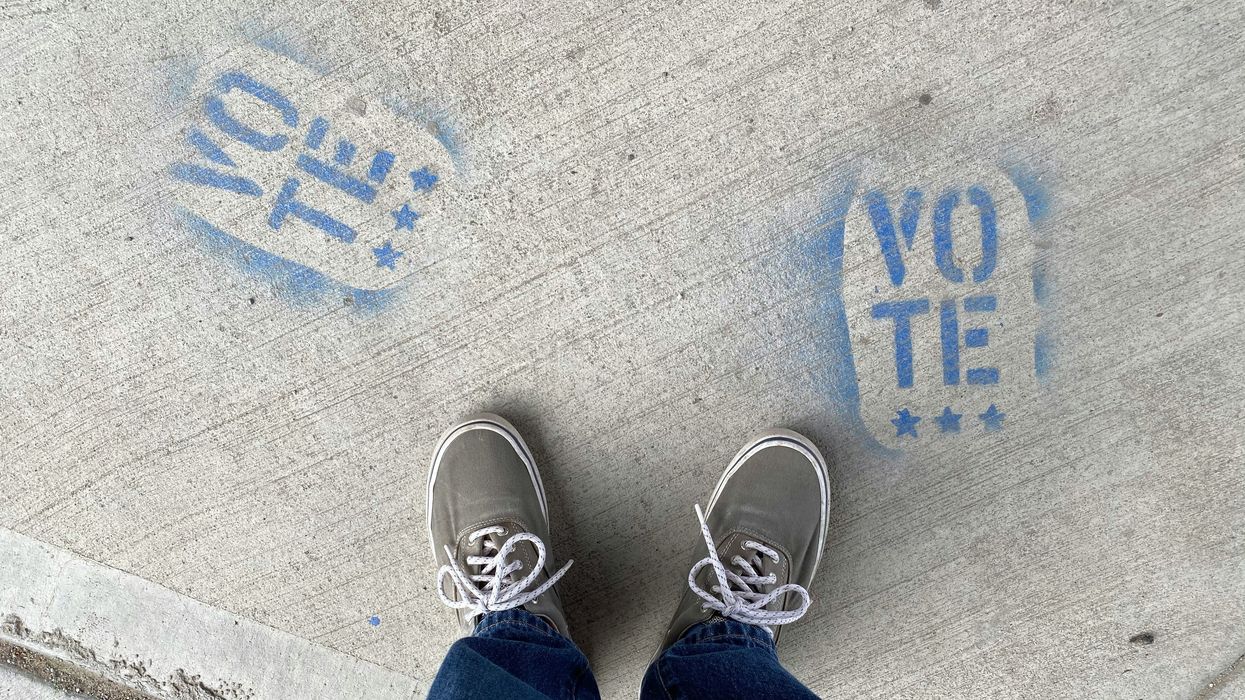With the stroke of a pen, New Mexico Governor Michelle Lujan Grisham enfranchised almost 350,000 independent voters recently by signing a bill for open primaries. Just a few years ago, bills to open the primaries were languishing in the state legislature, as they have historically across the country. But as more and more voters leave both parties and declare their independence, the political system is buckling. And as independents begin to organize and speak out, it’s going to continue to buckle in their direction.
In 2004, there were 120,000 independent voters in New Mexico. A little over 10 years later, when the first open primary bill was introduced, that number had more than doubled. That bill never even got a hearing. But today the number of independents in New Mexico and across the country is too big to ignore. Independents are the largest group of voters in ten states and the second-largest in most others. That’s putting tremendous pressure on a system that wasn’t designed with them in mind.
Independent voters in the United States are often overlooked or disregarded. That is, until their votes are needed, because independents often decide most close elections in November. The problem is that most elections in America aren’t decided in November anymore, as fewer and fewer seats, from Congress to County Sheriff, are competitive. That means primary elections are our country’s most important elections. Millions of independent voters are shut out of many of them. They are finding themselves increasingly represented by politicians whom they were never able to cast a meaningful ballot for or against.
For too long in New Mexico, where calls for equality and democracy are part of everyday conversation, the silence from the political class on these issues was deafening. However, something interesting began to happen. Independents began speaking out about the injustice of paying taxes for public elections that excluded them from participation. The media and many party members themselves began questioning the premise. Closed primaries are so unfair, so antithetical to American democracy, they are hard to defend for anyone but the most rabid partisans.
There were various attempts to obfuscate the issue, though. In equal terms, officials questioned whether independents wanted to vote and how they might cast their votes. The same questions have been asked about every disenfranchised group of voters since the fight to extend the franchise beyond white male landowners began.
Officials then sought to enact policies they claimed would serve the same interest, such as same-day voter registration. However, these policies had little impact on independent voter participation because they still required them to join a political party, and voters continued to demand a fair shake. They adopted automatic voter registration, only to find that when given a choice, new voters were overwhelmingly choosing to register as independent.
As independents began to stand up, their full diversity was on display. A 21-year-old Navajo voter, Rodzaiah Curtis, declared in an editorial that “Native voters are almost three times more likely to register as unaffiliated with a political party than non-Native voters.” Many of the legislature's representatives were hard pressed to oppose reform after finding that 42% of Hispanic voters are independent in a state with one of the largest populations of Hispanic voters in the country.
The youngest female representative to ever serve, Representative Cristina Parajón, declared in an editorial that “young people are registering as unaffiliated voters at an increasingly overwhelming rate. Young people in New Mexico vote at some of the lowest rates in the country. It’s not because they don’t want to participate, it’s because there are barriers to participating — like closed primaries.”
New Mexico is far from alone. And independents are just the tip of the iceberg. Americans of all stripes are questioning why our political system is increasingly at odds with the views of ordinary voters. When the first round of voting is restricted to narrow party bases, we get a system that prioritizes party loyalty over the public good. Partisanship is poisoning our great democracy and leaving voters with the false choice of playing along or sitting it out.
But independents are no longer playing along or sitting it out. They are beginning to organize and flex their muscles. Fellow independents and party members alike are standing with them and demanding a more perfect union. Political leaders, at least the ones smart enough to want to build bridges with the fastest-growing group of voters in the country, are starting to listen.
And New Mexico is just the beginning.
Jeremy Gruber is the SVP of Open Primaries, a national election reform organization. He was part of the coalition that passed open primaries in New Mexico.




















